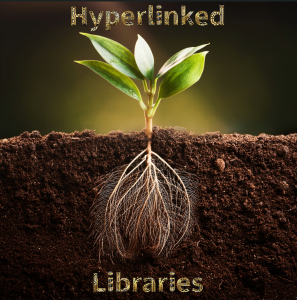
I reflect on Barbara Fister’s (2016) article, Reframing Libraries: How the Framework for Information Literacy might help us rethink what libraries are all about, which details the need for libraries to keep up with new advances, adapt, support their users, and seek new paths. Fister highlighted drastic changes in the library world, including the switch from ownership to a year-by-year subscription. Although libraries have typically always bought journal bundles, a combination of rising package costs and a preference for online materials, influenced libraries to subscribe to journals for virtual access.
It has been nearly 10 years since Fister’s article was published, and while many things still ring true, there have been interesting changes. An important and close-to-home example is the KingbotGPT, which became available in September 2024. The AI team at SJSU began production four years prior during the COVID-19 pandemic. In 2023, the team refined the KingbotGPT based on users’ queries. The KingbotGPT serves users when live reference is not available. As with anything new, people are hesitant, reluctant, and skeptical of it. Librarians can help ease worries by producing information literacy and policies surrounding AI use in addition to addressing known bias concerns (Cox and Tzoc, 2023; San José State University, 2024). In 2024, two librarians at the Université de Montréal also considered adding chatbot assistance to their toolkit. The librarians considered the benefits and challenges in three areas: “reference services, user training and metadata creation” (LaSelle, 2024). Although it was just a possibility, the open source coding was made available by the AI team at SJSU Library to help others who are interested in bringing this idea to life at their institution, almost acting as seeds that plant innovation (Rodriguez et al., 2025). I think it is important to reflect on change in the information landscape because there will always be a new technology to learn and libraries should strive to be ahead in adapting it.
References
Cox, C., & Tzoc, E. (2023). ChatGPT: Implications for academic libraries. College & Research Libraries News, 84(3), 99. https://doi.org/10.5860/crln.84.3.99
Fister, B. (2016). Reframing libraries. Inside Higher Ed. https://www.insidehighered.com/blogs/library-babel-fish/reframing-libraries
LaSelle, M. (2024). Coming to a library near you: Chatbots! Udemnouvelles. https://nouvelles.umontreal.ca/en/article/2024/09/20/coming-to-a-library-near-you-chatbots/
Rodriguez, S., Szydlowski, N., & Cai, J. (2025). Library-Led AI: Building a library chatbot as service and strategy [Conference Proceeding]. Association of College and Research Libraries.
San José State University. (2024, August 19). Chatbot policy (SJSU). Dr. Martin Luther King, Jr. Library. https://www.sjlibrary.org/policy/chatbot-policy
